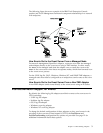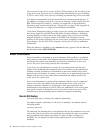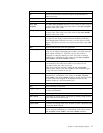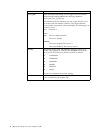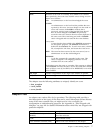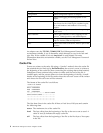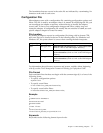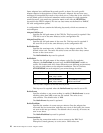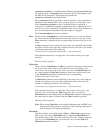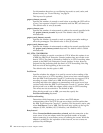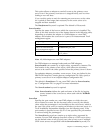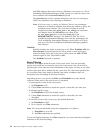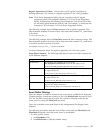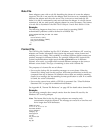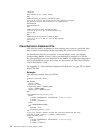connection_oriented (or its abbreviations CO and co) and connection_less.
The default value is connection_less, except for the AS/400 adapters and
the IBM Tivoli Enterprise Console gateway, which have
connection_oriented as the default value.
When connection_less is specified or used by default, a new connection is
established (and discarded) for each event or group of events that is sent.
When connection_oriented or one of its abbreviations is specified, a
connection is established at adapter initialization and is maintained for all
events sent. A new connection is established only if the initial connection is
lost. The connection is discarded when the adapter is stopped.
The ConnectionMode keyword is optional.
Filter Works with the FilterMode keyword to determine how events are filtered.
An event matches a Filter statement when each attribute=value pair in the
Filter statement is identical to the corresponding attribute=value pair in the
event.
A Filter statement must contain the event class, and optionally can include
any other attribute=value pair that is defined for the event class. The format
of a filtering statement is the following:
Filter:Class=class_name;[attribute=value;...;attribute=value]
Each statement must be on a single line. The attribute=value pair is case
sensitive.
This keyword is optional.
FilterCache
Works with the FilterMode and Filter keywords to determine which events
are stored in the cache when events cannot be sent successfully to the
event server. To store events in the cache, you must set BufferEvents=YES.
An event matches a FilterCache statement when each attribute=value pair
in the FilterCache statement is identical to the corresponding
attribute=value pair in the event.
A FilterCache statement must contain the event class (class_name) and can
include any attribute=value pair that is defined for that event class. The
format of a filtering statement is the following:
Filter:Class=class_name;[attribute=value;...;attribute=value]
Each statement must be on a single line. The attribute=value pair is case
sensitive. You must specify the Filter keyword, when you use the
FilterCache keyword. Additionally, the FilterCache statement must specify
the same class or subset of classes that the Filter statement specifies.
This keyword is optional.
Note: When using FilterCache with endpoint adapters and the IBM Tivoli
Enterprise Console gateway, you must set the filtering statements at
both locations to the same specifications.
FilterMode
Specifies whether events that match a Filter or FilterCache statement are
sent to the event server (FilterMode=IN) or discarded (FilterMode=OUT).
The default value is OUT. The valid values are IN or OUT, without regard for
case. If you set FilterMode=IN, you must have one or more Filter and
FilterCache statements defined.
Chapter 1. Understanding Adapters 11



